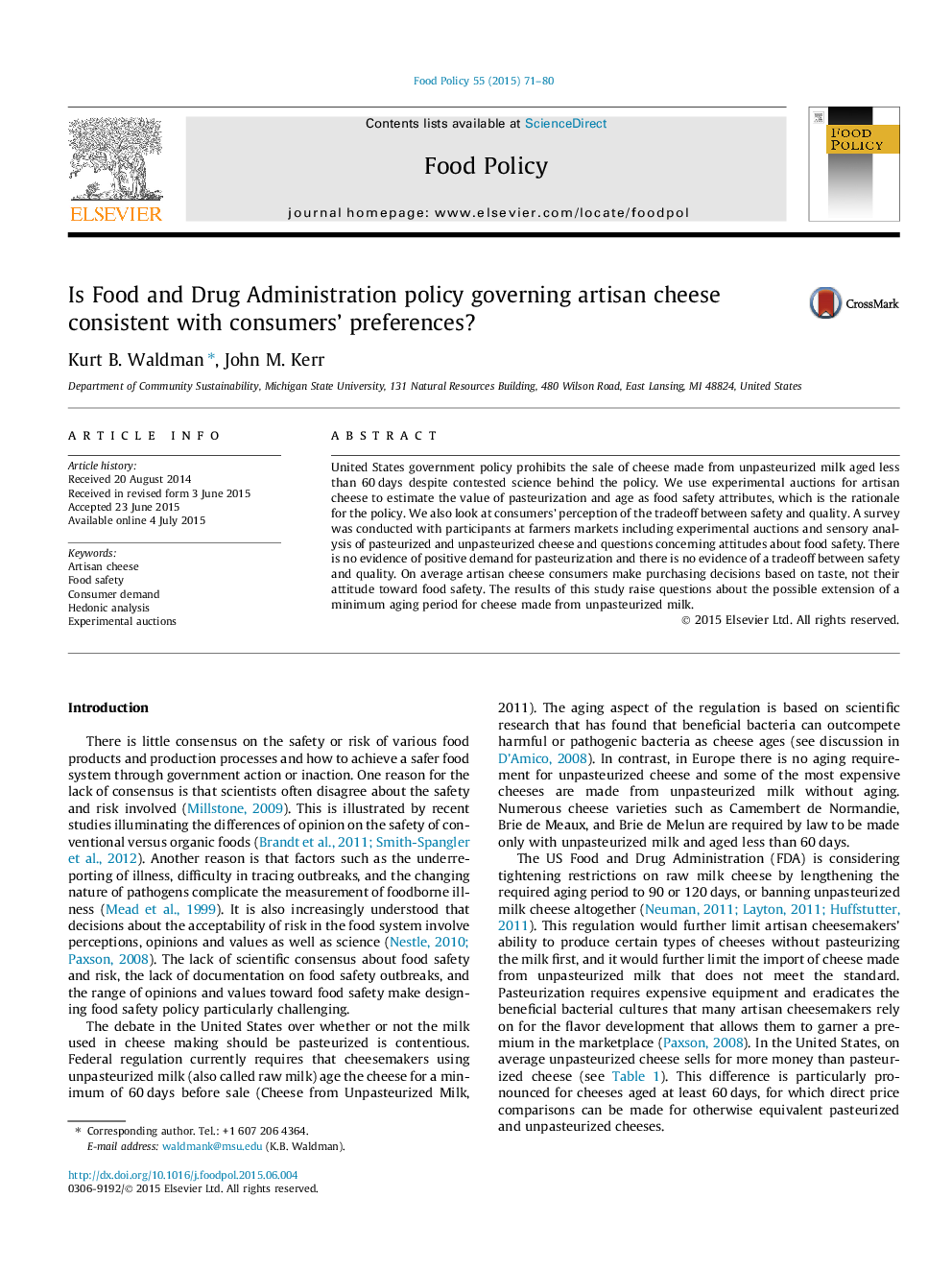| کد مقاله | کد نشریه | سال انتشار | مقاله انگلیسی | نسخه تمام متن |
|---|---|---|---|---|
| 5070330 | 1477021 | 2015 | 10 صفحه PDF | دانلود رایگان |

- FDA regulation of unpasteurized cheese is not consistent with consumer preferences.
- Consumers pay more for unpasteurized cheese in retail and experimental settings.
- Preference for aged cheese is related to an improvement in taste rather than safety.
- No difference was found in sensory ratings for pasteurized and unpasteurized cheese.
- Food safety attitudes are not significant predictors of WTP for artisan cheese.
United States government policy prohibits the sale of cheese made from unpasteurized milk aged less than 60Â days despite contested science behind the policy. We use experimental auctions for artisan cheese to estimate the value of pasteurization and age as food safety attributes, which is the rationale for the policy. We also look at consumers' perception of the tradeoff between safety and quality. A survey was conducted with participants at farmers markets including experimental auctions and sensory analysis of pasteurized and unpasteurized cheese and questions concerning attitudes about food safety. There is no evidence of positive demand for pasteurization and there is no evidence of a tradeoff between safety and quality. On average artisan cheese consumers make purchasing decisions based on taste, not their attitude toward food safety. The results of this study raise questions about the possible extension of a minimum aging period for cheese made from unpasteurized milk.
Journal: Food Policy - Volume 55, August 2015, Pages 71-80